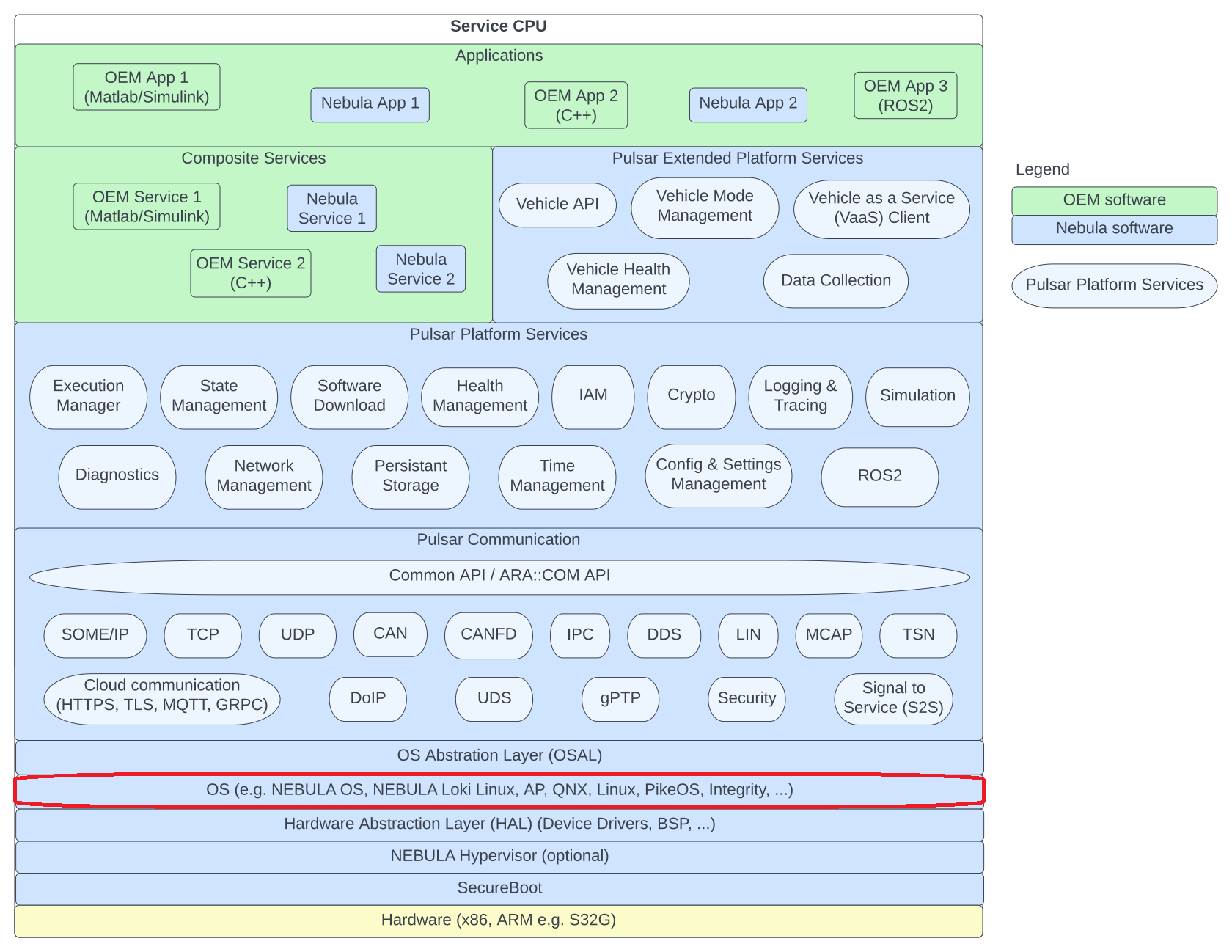A RTOS is the driving force behind the cutting-edge features and safety advancements in modern vehicles. From ensuring safety-critical functions operate flawlessly to facilitating seamless infotainment experiences, RTOS empowers automotive manufacturers to deliver vehicles that are smarter, more connected, and safer than ever before.
Nebula OS

A real-time operating system (RTOS) designed for use in safety-critical systems. It is commonly used where reliability, determinism, and real-time performance are essential.
Nebula OS has a modular/microkernel architecture, which allows developers to create custom systems by selecting only the components they need. This modularity makes it easy to build and maintain systems with a small memory footprint, which is important in safety-critical applications where memory usage must be kept to a minimum.
